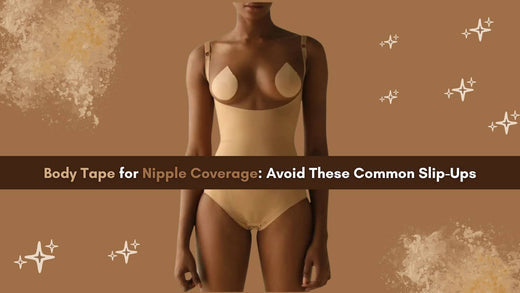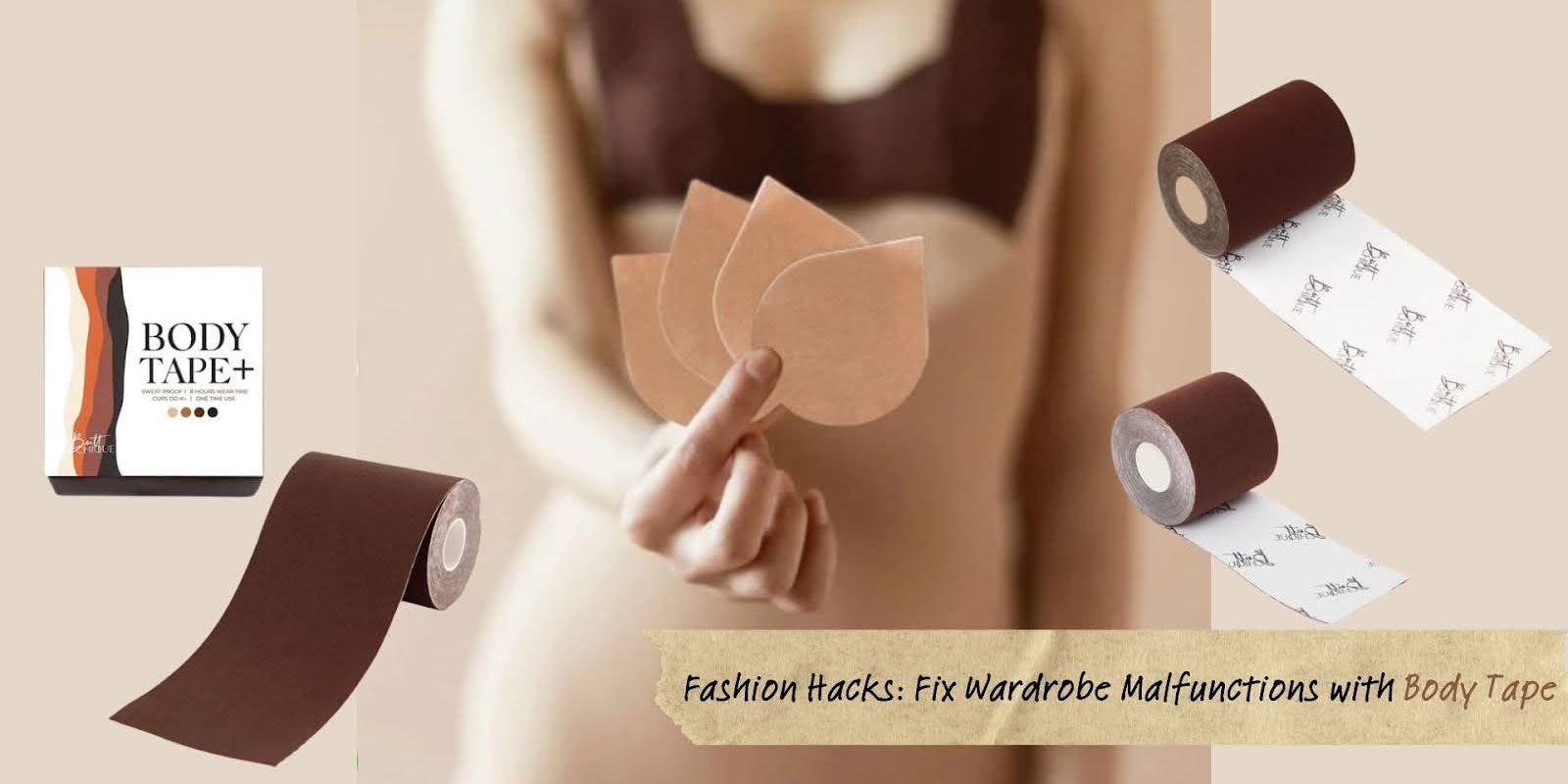Common Mistakes to Avoid When Using Body Tape for Nipple Coverage

Introduction
Ever spent hours piecing together the perfect outfit, only to realize your usual bra just won't cut it? Body tape for nipple coverage can be a game-changer, opening up a world of fashion possibilities. But hold on—before diving in, it's essential to know how to avoid some common mistakes. Let's talk about the pitfalls to sidestep when using body tape for nipple coverage, ensuring you feel confident and comfy in whatever you wear.
Introduction to Common Body Tape Mistakes
Using body tape seems straightforward, right?
Stick it on and you're good to go. Not so fast! There are some sneaky errors that can trip you up, turning your fashion fix into a fashion faux pas.
From application errors to choosing the wrong size, these missteps can leave you in a sticky situation—literally. Let's break down these common mistakes and learn how to avoid them.
Mistake #1: Not Preparing the Skin
Skipping skin prep is like painting a masterpiece on a dirty canvas—it just doesn't work. Without proper preparation, body tape might not adhere correctly, leading to slips or discomfort.
Why It's a Problem
Oils, lotions, and sweat can prevent the tape from sticking securely. The last thing you want is for your tape to peel off halfway through your night out.
How to Avoid It
Make sure your skin is clean and dry before applying the tape. Gently cleanse the area with mild soap and water, then pat dry. Avoid using moisturizers or oils on the area where you'll apply the tape. Think of it as giving your tape a fresh start!
Mistake #2: Incorrect Size Selection
Size matters, especially when it comes to nipple coverage. Choosing the wrong size can lead to inadequate coverage or uncomfortable bunching.
Why It's a Problem
Too small, and you risk exposing what you'd rather keep hidden. Too large, and the tape might peek out from under your outfit. But don't worry, our nipple coverage tips have you covered (literally!)
How to Avoid It
Measure carefully and choose a size that fully covers the nipple and areola without extending too far beyond. Products like the Pasties in Sand come in various sizes to ensure a perfect fit for everyone.
Mistake #3: Ignoring Usage Instructions
Let's be honest—how many of us skip reading instructions? When it comes to body tape, this can lead to application errors and discomfort.
Why It's a Problem
Not following the manufacturer's guidelines might result in improper adhesion, skin irritation, or difficulty removing the tape.
How to Avoid It
Take a few minutes to read the instructions that come with your body tape. Each product may have specific application tips or precautions. Knowledge is power, after all!
Mistake #4: Applying Tape to Irritated or Sensitive Skin
Using body tape on irritated skin is a recipe for discomfort.
Why It's a Problem
Applying adhesive to sensitive or broken skin can cause further irritation or even damage during removal.
How to Avoid It
Avoid applying tape to areas that are sunburned, rashy, or irritated. If you have sensitive skin, doing a patch test with the tape can help you gauge any potential reactions.
Mistake #5: Reusing Body Tape
While it might be tempting to reuse tape to save a few bucks, this can lead to application errors and hygiene concerns.
Why It's a Problem
Adhesive strength diminishes after the first use, and reapplying used tape increases the risk of skin irritation and bacterial growth.
How to Avoid It
Use fresh tape each time. Your skin will thank you, and you'll enjoy better adhesion and comfort.
Mistake #6: Stretching the Tape Too Much
A little stretch can help the tape conform to your body, but overdoing it isn't a good idea.
Why It's a Problem
Overstretching can cause the tape to pull and lift, reducing its effectiveness and potentially causing skin irritation.
How to Avoid It
Apply the tape gently, smoothing it over the skin without excessive tension. Let the tape do its job without undue stress.
Mistake #7: Not Considering the Outfit Material
Different fabrics interact with tape differently. Ignoring this can lead to visible tape lines or discomfort.
Why It's a Problem
Sheer or delicate fabrics might not conceal the tape, and rough materials could cause friction.
How to Avoid It
Choose a tape that matches your skin tone for discretion under sheer fabrics. The Body Tape in Coco offers a range of shades to blend seamlessly. Consider the texture of your outfit and adjust accordingly.
Conclusion
Using body tape for nipple coverage doesn't have to be a sticky situation. By avoiding these common mistakes, you can enjoy the freedom to wear what you love with confidence and comfort. Remember, a little preparation goes a long way. So go ahead, embrace those daring outfits, and let body tape be your secret weapon in avoiding fashion faux pas!
Ready to make body tape your new best friend? Check out Butt-Chique's range of body tapes and nipple covers to find the perfect match for your styling needs. Say goodbye to fashion faux pas and hello to confidence!
Read More:
Confidently Wear Backless Dresses and Tops with Boob Tape
Boob Tape Safety: Is It Safe to Tape Your Breasts?
FAQs
What should I do if body tape doesn't stick?
Ensure your skin is clean and dry before application. Avoid lotions or oils, and consider using an alcohol wipe to remove any residue. If the problem persists, try a higher-quality tape designed for better adhesion.
How to know if the tape is too tight?
If you feel discomfort, pinching, or restricted movement, the tape might be too tight. Gently reapply it without stretching excessively to achieve a comfortable fit.
Can body tape be used under swimsuits?
Some body tapes are waterproof and suitable for use under swimsuits. Look for tapes specifically designed for water activities and always test them beforehand.
Is body tape safe for sensitive skin?
High-quality, hypoallergenic tapes like those from Butt-Chique are designed to be gentle. If you have sensitive skin, it's wise to do a patch test to check for any reactions.
How do I remove body tape without irritation?
Remove the tape slowly and gently. Using a natural oil or adhesive remover can help loosen the tape, making it easier to peel off without discomfort.



